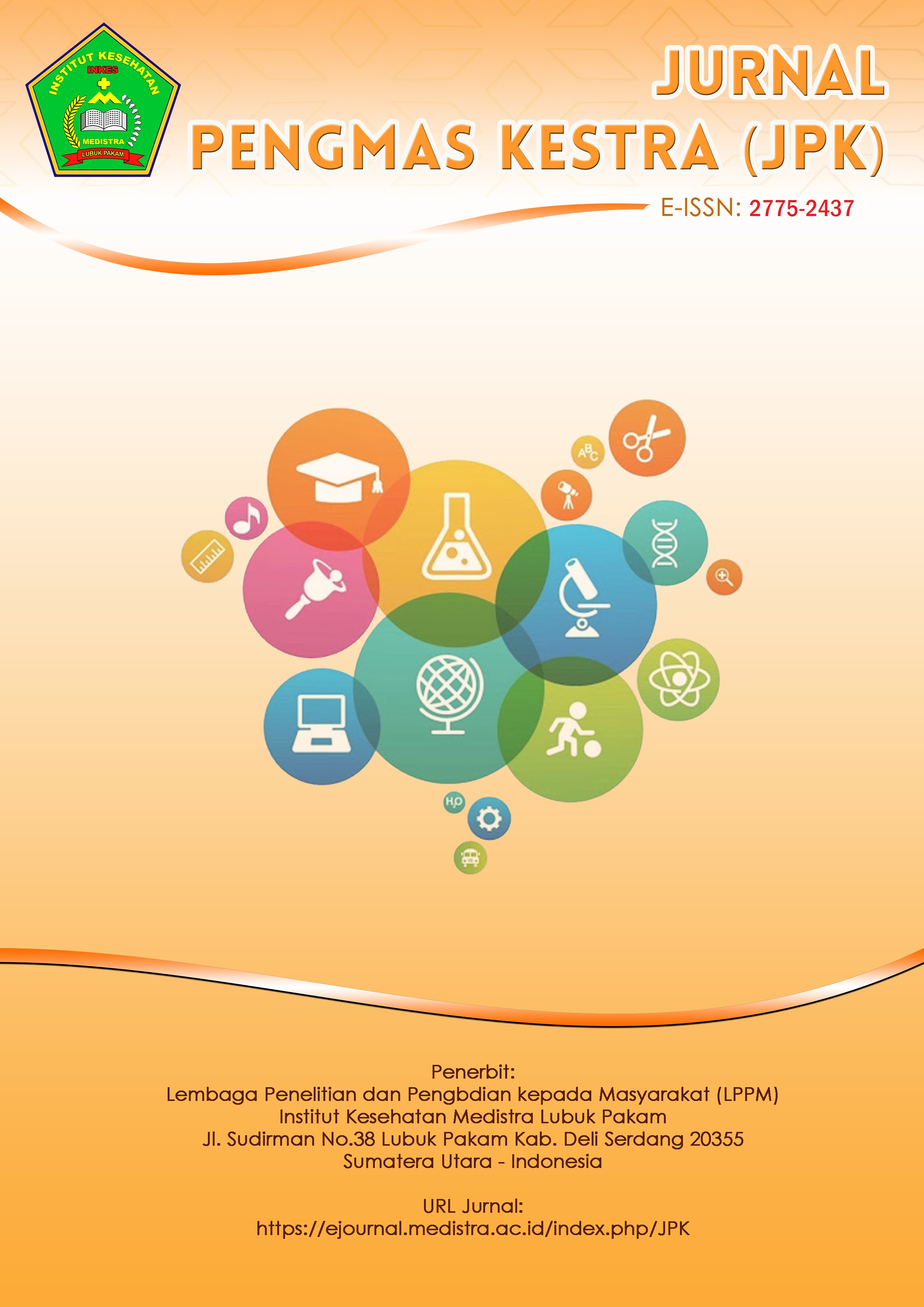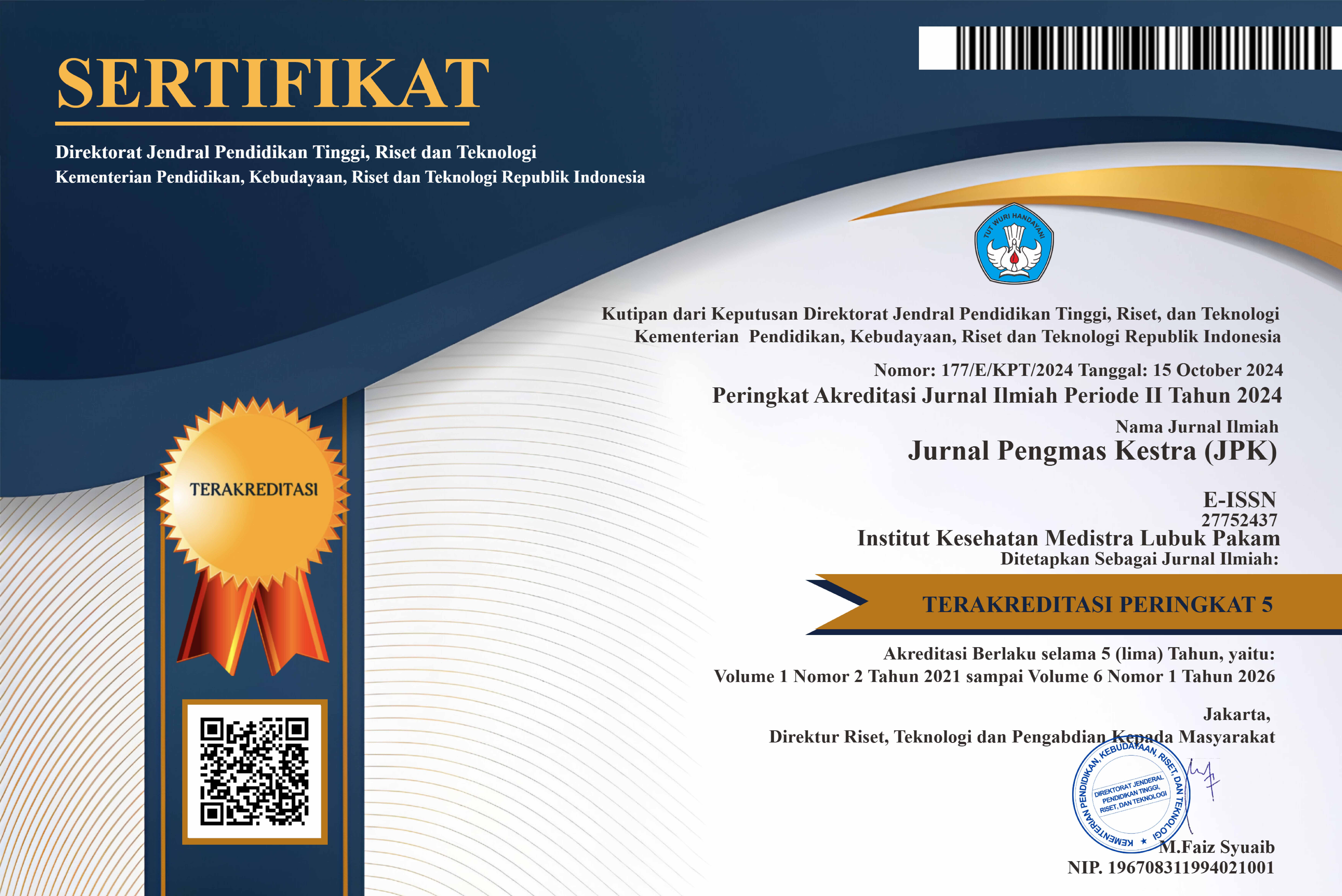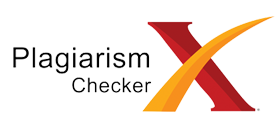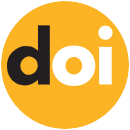Health Education: the Effective Handwashing for Early Childhood at Al-Shafa Kindergarten Deli Serdang Regency in 2024
DOI:
https://doi.org/10.35451/rmkjs636Keywords:
Health Education; Hand Washing; Kindergarten; Community ServiceAbstract
habits have not reached their full potential. Washing hands properly is one of the important yet sometimes overlooked hygiene and healthy living practices. Initial observations at Al-Shafa Kindergarten revealed that most students were unable to perform efficient handwashing techniques according to health standards and were unaware of critical times to wash their hands. This can increase the possibility of disease transmission from unclean hands. The purpose of community service is to build good living habits that can stop the spread of disease through dirty hands. The activity method uses an educational and participatory approach through interactive counseling methods, demonstrations, and direct practice, which are designed according to the characteristics of early childhood. Community service was carried out at Al-Shafa Kindergarten, Lubuk Pakam, Deli Serdang Regency, with 16 children. The results of the Community Service activity showed that 81.3% of children were able to mention important times to wash their hands and 75% of children were able to follow the six steps to wash their hands correctly. This shows that this Community Service activity has achieved a success rate (78.15%) in forming children's understanding and basic skills about PHBS. Health education activities on effective hand washing at Al-Shafa Kindergarten have succeeded in increasing the knowledge and skills of early childhood in maintaining hand hygiene. Interactive, fun, and age-appropriate learning approaches have proven effective in forming clean living behaviors from an early age. The involvement of teachers and the school environment is an important supporting factor in the success of this activity. It is hoped that this education can be the beginning of positive habits that are sustainable in the school environment and at home.
References
[1] World Health Organization. Healthy diet. 2020; Available from: https://www.who.int/tools/child-growth-standards/standards
[2] Febrianti, R. F., Ramadhani, S. P., Kencana, T., Yusman, R., Yanti, Y., & Netri, Y. N. (2023). PKM penyuluhan kesehatan cuci tangan dan edukasi gizi pada anak usia dini orang tua dan guru. Community Development Journal: Jurnal Pengabdian Masyarakat, 4(6), 11541–11544.
[3] Fitria, R. (2024). Perilaku hidup sehat (PHBS) dan praktik cuci tangan di sekolah: pendidikan kesehatan pada anak pra sekolah di tk it iqro, desa sukaraja, gedong tataan. Hawa: Jurnal Pemberdayaan Dan Pengabdian Masyarakat, 2(1), 22–27.
[4] Junaedi, E. C., Maharani, A., Ananda, C., Subakti, G. A., Abdurrahman, A. N., Lestari, N. B. A., ... & Lubis, N. (2024). Evaluasi Kesadaran Siswa Sdn 2 Sukamenak Dalam Menjaga Kesehatan Mata Di Era Dominasi Penggunaan Gawai. Martabe: Jurnal Pengabdian Kepada Masyarakat, 7(5), 1807-1815.
[5] Sugiritama I, Wiryawan I, Ratnayanthi I, Arijana I, Linawati N, Wahyuniari I. Pengembangan Pola Hidup Bersih dan Sehat (PHBS) pada anak sekolah melalui metode penyuluhan. Buletin Udayana Mengabdi. 2021;20(1):64.
[6] Zurrahmi, Z. R., Hardianti, S., & Syahasti, F. M. (2021). PKM Pengenalan Senam 6 Langkah Cuci Tangan dan Senam Irama pada Siswa Kelas 5 dan 6 di SDN 011 Bukit Kratai Rumbio Jaya. COVIT (Community Service of Tambusai), 1(2), 35–39.
[7] Oktav I, N., Wardita, Y., Hasanah, L., & Akbar, I. (2023). Pendampingan Pasukan Gerakan Gosok Gigi dan Cuci Tangan dengan Sabun menggunakan Media T-Bone. Poltekita: Jurnal Pengabdian Masyarakat, 4(1), 123–131.
[8] Ningsih, D. A., Sakinah, I., & Fitria, L. (2025). Peningkatan Kesadaran Cuci Tangan melalui Penyuluhan di KB dan TK Ad-Dzikra Lamongan Situbondo Jawatimur. Jurnal Abdi Masyarakat Indonesia, 5(3), 829-836.
[9] Amalia, A. A., & Yulianti, M. (2025). Peran pola asuh orang tua dalam membangun kemandirian personal hygiene anak usia prasekolah. Penerbit NEM.
[10] Zahra, F. A. A., Handayani, R. N., & Suandika, M. (2025). Edukasi Cuci Tangan pada Anak Usia Dini di PAUD Bani Malik. Jurnal Pengabdian Harapan Ibu (JPHI), 7(1), 86-90.
[11] Biisnilla, E., Aziz, A. R., & Indriati, G. (2024). Hubungan Perilaku Cuci Tangan Pakai Sabun (CTPS) Terhadap Kejadian Diare pada Anak Usia Sekolah di Wilayah Pesisir Pekanbaru. Indonesian Research Journal on Education, 4(4), 3775-3781.
[12] Salsabella, P. R., Suprihartini, C., & Palupi, M. (2024, May). Penyuluhan Cara Mencuci Tangan Dengan Benar Pada Anak Tk Sebagai Upaya Meningkatkan Perilaku Hidup Bersih Dan Sehat. In Proceedings of the National Health Scientific Publication Seminar (Vol. 3, No. 2, pp. 1021-1026).
[13] Kusmaryono, I., Ibad, M. K., Kurniasih, G., Fajri, S. S. Y., Marshanda, O. R. A., Alwasi’i, T., ... & Pramesti, R. D. (2024). Pendampingan pembelajaran dan cuci tangan guna memanfaatkan sanitasi air bersih di PAUD Permata Bunda Genuksari. Community Empowerment Journal, 2(4), 223-233.
[14] Syaputri D, Manalu SMH, Apsari DA, Suprawihadi R. The Influence of Clean and Healthy Living Behavior Education on Changes in Student Behavior. Contagion: Scientific Periodical Journal of Public Health and Coastal Health. 2023;5(4):1194–205.
[15] Laksana DNL, Dhiu KD, Ita E, Dopo F, Natal YR, Tawa OPA. Aspek Perkembangan anak usia dini. Penerbit NEM; 2021.
[16] Wahyuni, E. S., Wulandari, E., & Prastiwi, S. (2025). Edukasi Perilaku Hidup Bersih dan Sehat (PHBS) untuk Anak-Anak Siswa KB–TK Noor Fadjar Kota Malang. Jurnal Pengabdian Meambo, 4(1), 63-68.
Downloads
Published
Issue
Section
License
Copyright (c) 2025 Aya Sofia Diaz, Keleng Ate Ginting, Rahmad Ramadhan Ritonga, Regina Elianda Tampubolon, Sri Ulina Purba

This work is licensed under a Creative Commons Attribution 4.0 International License.
Copyright in each article is the property of the Author.




















